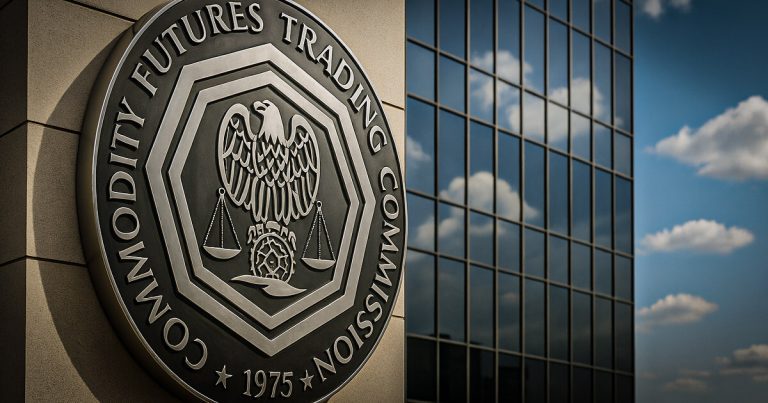The Commodity Futures Trading Commission (CFTC) has officially withdrawn two staff advisories that previously impose clear regulatory expectations on digital asset derivatives, signaling a pivot towards a harmonized treatment of crypto-based financial products with traditional derivatives.
According to an official statement released on March 28th, CFTC’s Market Monitoring Division (DMO) and Clearing and Risk Division (DCR) provided CFTC Staff Advisory No. 18-14, which provided guidance on the list of cryptocurrency derivative products, and advisory No. 23-07, which addressed risks related to risks associated with the expansion of DCOS.
With every CFTC press release 9059-25, withdrawals will be effective immediately.
“The Commodity Futures Trade Commission’s Market Monitoring and Clearing and Risk Division has announced it has withdrawn CFTC Staff Advisory No. 18-14, which will immediately announce an advisory on cryptocurrency derivatives products lists.
As stated in the withdrawal letter, DMO and DCR determined that advisory is no longer necessary given the cryptocurrency derivatives product list and the experience of additional staff on increasing market growth and maturation. ”
The decision reflects both increased staff experience with crypto-related derivatives and wider maturation in the digital asset market. The agency said the withdrawal would match surveillance practices with what could be applied to traditional financial instruments and remove additional scrutiny that previously highlighted digital asset derivatives.
The road to regulatory parity
The withdrawal of these recommendations highlights the CFTC’s strategic move to eliminate regulatory disparities between digital assets and traditional financial products.
Staff Advisory No. 18-14, issued in 2018, needed an exchange listing crypto derivatives to provide increased transparency and positive risk assessment, reflecting early attention amid growing market interest.
The withdrawal note states,
“Based on previous experience with cryptocurrency derivative products, this reflects the ‘current thinking of staff’ in 2018. ”
Advisory No. 23-07 issued in 2023 raised concerns about the systemic risks posed by digital assets as DCOS began expanding its clearing services to include new tokenized products. The withdrawal of both documents removes languages that implied a growing regulatory concern, particularly linked to the digital nature of these assets.
“Given the additional staff experience over the period in between, and the increased market growth and maturity, DMO and DCR believe that cryptocurrency list advisories are no longer needed. Therefore, DMO and DCR have decided to withdraw any effective advisories immediately.”
The CFTC emphasized that digital asset derivatives are subject to the same regulatory review and risk protocols that apply to derivatives based on commodities or financial indexes such as oil futures and interest rate swaps.
Impact on market participation and institutional involvement
The CFTC clears the path for more institutional participation in the crypto derivatives market by eliminating separate recommendations. This change is expected to reduce compliance uncertainty for companies seeking to offer or clear digital asset-based products, particularly within established financial institutions already involved in the traditional derivatives market.
The move addresses longstanding industry concerns about the lack of equivalence in regulatory treatment and aims to show that digital asset derivatives are not subject to ad hoc or inconsistent surveillance.
While eliminating the normative directive, the CFTC noted that DCOS is still expected to carry out a thorough risk assessment, especially given the volatility of digital tokens and unique custody mechanisms. This is consistent with the agency’s broader approach to maintaining careful surveillance while promoting innovation.
The decision reflects wider regulatory changes across US financial institutions. Other regulators, including the office of the Secretary of Currency (OCC), have eased procedural requirements for digital asset services offered by banks. The OCC now allows US financial institutions to engage in stubcoin and custody services without prior approval, provided they have a proper risk management structure in place.
CFTC pivots are part of a broader multiagency trend to eliminate artificial distinctions between the Tradfi and Defi sectors as financial markets integrate blockchain infrastructure and tokenized products.
According to CFTC Chair Rostin Behnam, agents continue to be committed to “principles-based surveillance” that balances innovation with market integrity. Whether this model can effectively scale beyond the broader digital asset landscape may depend on future interagency collaboration and legislative clarity.






